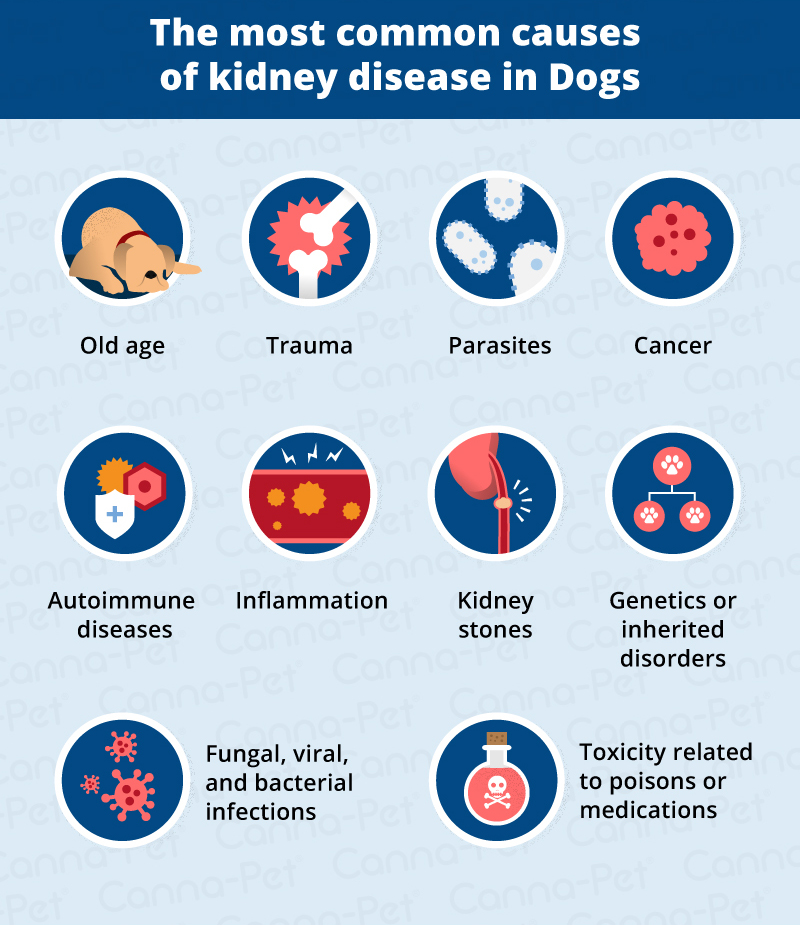Free Ideas On Picking Best Vitamins For Dogs
Free Ideas On Picking Best Vitamins For Dogs
Blog Article
How Can Omega-3 Fatty Acids Help With Joint Health In Both Cats And Dogs?
Omega-3 fatty acids and in particular EPA (eicosapentaenoic acid) and DHA (docosahexaenoic acid) are essential to play a major role in sustaining and improving joint health in pets and felines. Here's how they help:
Anti-inflammatory properties
Reduced Inflammation
Function: The omega-3 fat is a powerful anti-inflammatory effect. They suppress the production cytokines that are pro-inflammatory and eicosanoids, which cause inflammation.
Benefits: By reducing inflammation in the joints, Omega-3s can reduce swelling and pain caused by arthritis. This can improve the quality of life for pets by improving the comfort level for pets.
Joint Lubrication and Health
Improved Joint Lubrication
Function Omega-3 fat acids help maintain the health and the lubrication of synovial fluid. This is the fluid that lubricates joints.
Benefits: Improved lubrication leads to smoother joints, less friction and less wear and tear on cartilage. This is particularly beneficial for pets suffering from joint problems or who are susceptible to developing them.
Cartilage Protection and Repair
Cartilage Protection:
Function: Omega-3s help maintain cartilage health by decreasing the activities of enzymes that cause cartilage breakdown.
Benefits : Protecting cartilage helps maintain joint health and slows the progression of osteoarthritis.
Immune System Support
Immune System Regulation:
The function of Omega-3 acids is to control immune responses, promoting the balance of inflammation.
Benefits A well-regulated immune system will be better able to deal with joint health issues. It helps prevent excessive inflammation, and further joint injury.
Comfort and Mobility Enhanced
Better Mobility
Omega-3s can aid your pet to get around more easily by lessening inflammation and maintaining joint structures.
Benefits: Pets who are older and those with arthritis are often more mobile and experience less discomfort. This allows them to lead a healthier and more active lifestyle.
Additional Health Benefits
Overall Health
Function The Omega-3 Fatty Acids help improve skin, cardiovascular and hair health in pets.
Benefits : A healthy pet will likely be more energetic and have healthier joints over time.
Use and considerations
Dosage, administration and dosage The amount of Omega-3s recommended for your pet will depend on its size, weight and any specific health conditions. It's important to follow the veterinarian's recommendations or the instructions on the label of the product.
Omega-3s can be obtained from supplements with fish oil. They are a fantastic source of EPA and DHA. Selecting products that are specifically designed for pets is essential to ensuring safety and efficacy.
Omega-3 supplements can cause side effects. Some pets experience issues with digestion or breath that is fishy. To minimize side effects, start by taking a small dose, and then gradually increase the dose.
The final sentence of the article is:
Omega-3 fatty acids are highly beneficial for joint health in dogs and cats. Their anti-inflammatory qualities, ability improve joint fluidity, protect cartilage, and boost the immune system contributes to better joint functions and reduced pain. Regularly supplementing pet food may improve mobility and encourage healthy, active lifestyle. View the top rated treatment for cushings disease in dogs advice for more tips including pet anxiety supplements, pet anxiety relief, pet supplements for pets with fear of stairs and steps, kidney disease in cats, pet supplements for pets with diabetes, cat supplements, pet supplements for pets with digestive problems, pet supplements for pets with fear of eye drops and more.
What Can Coconut Oil Do To Help In The Treatment Of Cat And Dog Allergies To The Skin?
Coconut oil is a natural remedy to help animals and cats who suffer from allergies to the skin. This is due to its anti-inflammatory, healing, and antimicrobial properties. Coconut oil is a natural remedy which can assist pets with allergies.
Moisturizing Properties
Hydration of the Skin
Coconut oil penetrates easily and is an excellent moisturizer.
Benefits: It offers relief from itching and promotes healthier skin barrier. This is particularly beneficial for pets suffering from allergic dermatitis that often results in dry and itchy skin.
Anti-inflammatory Effects
Inflammation Reduction:
Coconut oil contains a substance called lauric Acid. This acts as an anti-inflammatory.
Coconut oil is a great remedy for swelling, inflammation, and irritation caused from skin allergies. This may provide relief to pets suffering from allergies.
Antimicrobial Activity
Beware of Infections
Function: The antimicrobial properties of the lauric and caprylic acids found in coconut oil help to combat viruses, bacteria and fungi.
Coconut oil has many benefits. It can treat or treat secondary skin infections which are result of scratching or allergies. This can help maintain the good health of your skin while keeping any complications from occurring.
Relaxation and healing
Promote Healing
Coconut oil is a natural remedy for the skin.
Benefits. It is able to soothe and heal minor cuts or abrasions. This may help speed the healing process for the skin that has been damaged by allergies.
Barrier Protection
Enhancing Skin Barrier:
Coconut oil is a natural moisturizer that helps strengthen the skin barrier.
Benefits: A stronger skin barrier will protect against allergens and environmental irritants. It also decreases the chance of skin irritations and allergic reactions.
Dietary Supplements
Internal Benefits:
Coconut oil can be consumed orally as a supplement to the diet.
Benefits: When consumed in large quantities, it improves overall skin health from the inside out. Its anti-inflammatory and antimicrobial qualities can help reduce systemic inflammation and enhance the immune system of pets and reduce the risk of skin allergies.
Use and considerations
Topical application: Apply coconut oil directly on the affected area of the skin. Massage gently to ensure it's absorption. It can be applied once or twice daily based on the intensity.
Coconut oil can be added to pet food. The recommended dosage for pets is usually 1 teaspoon coconut oil per 10 pounds.
Coconut Oil Quality: Make sure that you are using organic coconut oil, which is free of additives, preservatives and other harmful chemicals.
Coconut oil can cause reactions. Although it is generally regarded to be safe, it is important to keep an eye on your pet for negative reactions. These include vomiting or diarrhea when ingested or irritated the skin when applied on top.
Conclusion
Coconut oil is an effective natural remedy for treating allergies to the skin in dogs and cats. Its healing and antimicrobial properties, as well as its anti-inflammatory and moisturizing properties, soothe and protect skin, reduce inflammation and itching, and promote skin health. Coconut oil used both as a dietary and topically applied supplement can dramatically reduce the severity of symptoms of allergies and enhance the quality of life in pets with skin allergies. View the recommended moved here on pet wellbeing australia for site examples including pet allergy relief supplements, pet pregnancy supplements, pet lactation supplements, pet egg protein supplements, pet supplements for pets with skin ulcers, pet urinary tract supplements, pet energy supplements, pet whey protein supplements and more.
Apple Cider Vinegar Helps With Dog And Cat Yeast Infections.
ACV is employed as a treatment for yeast infections in dogs and cats. ACV has some potential benefits however, despite the anecdotal evidence and studies that show its use can be beneficial, it must be used under veterinary supervision because of its acidic qualities as well as its adverse side effects. ACV is a treatment option to treat yeast infections.
Antifungal Properties
Acidic Environment
ACV's acidity is between 2.5-3.0 pH. This acidic pH may hinder yeast growth.
Benefits Utilizing dilute ACV topically or incorporating it into your bathwater of your pet may decrease the growth of yeast on the skin and the ears.
Skin pH Regulator
Balancing Skin pH:
ACV helps to regulate the pH of skin, promoting an endocrine-friendly barrier and preventing the growth of yeast.
Benefits: Maintaining a healthy pH balance can help prevent yeast infections on your skin and improve the health of your skin.
Anti-inflammatory effects
Reduced inflammation
ACV contains mild anti-inflammatory effects.
Benefits: reducing swelling can alleviate symptoms of yeast infections such as irritation, discomfort and the appearance of redness.
Support for Digestive Health
Internal Use
ACV has been found to regulate gut flora and aid in digestion when taken in small amounts and very dilute.
Benefits of a healthy gut environment: By supporting immunity and microbial balance, a healthier environment in the gut can help reduce yeast overgrowth.
Usage and aspects
Topical Application: Use ACV diluted by water (typically, 1 part ACV to 1-2 parts water) or spray or rinse on the affected areas of skin or ears. Avoid applying it directly to open wounds or sensitive skin.
Internal Use - If you're thinking of using ACV in your internal use, talk to your veterinarian first. ACV is a good choice for infants in small doses and should be extremely dilute (e.g. 1 teaspoon or a tablespoon per cup of water).
Monitor for signs of irritation or allergic reactions, when applying ACV to the skin. Do not use it if any negative reactions develop.
Consultation with veterinarians: Prior to applying ACV for treating yeast infections in animals, it's important to consult with a veterinarian. They can offer advice on the proper dosage, application methods, and the potential risk based on your pet's specific health requirements.
We also have a conclusion.
Apple cider vinegar is utilized to treat yeast infections in cats and dogs However, it should be performed under the guidance of a veterinarian. ACV might provide mild anti-inflammatory as well as antifungal properties due to its acidic nature. It is essential to dilute ACV in a proper manner and apply it with care so as to avoid irritations or adverse reactions. ACV treatment is only safe when it is accompanied by veterinary advice. Have a look at the top herbs good for dogs examples for site advice including yeast infections in dogs, pet supplements for pets with diabetes, pet supplements for puppies and kittens, pet supplements for pets with fear of other animals, pet supplements for pets with nerve damage, pet supplements for pets with heart disease, pet supplements for pets with muscle atrophy, mcdowells herbal and more.